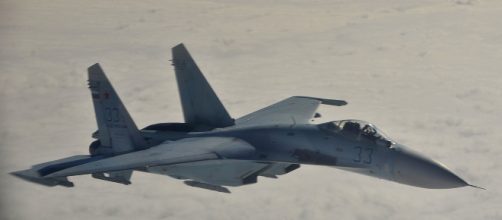According to latest reports from security officials, the US government is set to announce new restrictions on Russian military aircraft flying over US territory on observer missions.
According to Fox News, this is after similar measures were imposed on US flights over Russia, which officials say is in violation of the Open Skies Treaty in which US and Russia are signatories.
A US delegation will announce the new restrictions during an Open Skies meeting that will be held in Vienna, later in the year.
In August, a Russian military plane conducted a low-level observation flight over Bedminster and Washington, causing tension as President Donald Trump, was at the time, on a 17-day break, residing at the National Golf Club.
Russia's violation
However, Pentagon and State Department officials clarified that the low-level observation flights over the two US cities were not the reason the government was planning to restrict Russian flights over American territory.
Speaking to the Wall Street Journal, security officials said that Kremlin imposed restrictions on US military observer missions over Kaliningrad in Russia. A region where the US believes is the site for sophisticated Russian weaponry.
The terms of the treaty allow a member state to cover up to 3,418 miles of observatory flights, but Russia imposed a 310-mile flight restriction over the Kaliningrad region on US military flights.
Pentagon officials said that Russia's move would force the US to use two military flights to observe the entire Kaliningrad region.
Which they said, is an unnecessary waste of resources, that could be allocated elsewhere.
Open Skies Treaty
The treaty was agreed on, and signed by 34 member states in January 2002 and allows the member countries to conduct unarmed military surveillance over the entire territory of its signatories.
The main objective of the surveillance flights is to foster military transparency and enhance a mutual understanding by giving member states a direct role in military information gathering that is of concern to them.
Kremlin response
Responding to the intended US move, Russian Presidential Spokesman Dmitry Peskov said in a statement that imposing restrictions on Russian observatory missions, was not the way to go.
Peskov added that any misunderstandings between member states should be solved within the framework of the treaty. He said that under the document, each member had individual obligations, and any complaints arising, should be put forward through designated channels in accordance with the treaty.


